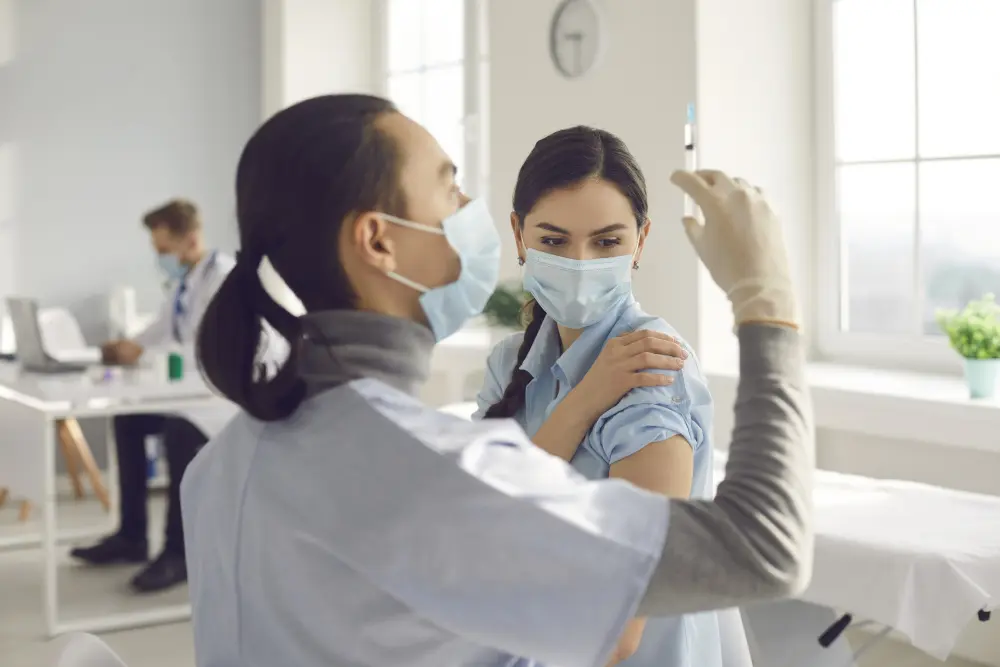
Clinical trials in the age of COVID-19
Is now the right time for clinical trials?
The business of conducting clinical trials is changing. Due to the current global pandemic, research organizations are being forced to change how they recruit and monitor participants in studies and how they conduct daily business in general. For all of the change and general public uncertainty around COVID-19, some companies may be wondering if now is the right time to budget for clinical research.
Upon close inspection, however, the changes spurred by the current health climate may be impacting clinical research in more positive ways than negative ones. According to some contract research organizations around the world, participant recruitment is up. Virtual technologies which already existed are increasingly being adopted. So long as companies are prepared for the unexpected, now may be as good a time as any to conduct clinical research.
Impact
There’s no denying that COVID-19 has created uneasiness in the general population. On top of that, massive unemployment and slowing or all-out closures of public transportation are unusual hurdles to normal business activity. These factors appear to be having the opposite effect on clinical research, though.
“The ongoing COVID-19 pandemic has favorably impacted the ability to conduct studies,” says William J. Rowe, president and CEO of Nutrasource (Guelph, ON, Canada), a contract research organization with expertise in foods, beverages, and dietary supplements. “Participants generally have more flexible schedules and availability during core work hours, and this supplemental income from participant stipends is also attractive.” In addition to more flexible participant schedules and the need for additional income, Rowe says that greater interest in health and wellness spurred by COVID-19 is also improving recruitment numbers.
While the pandemic has slowed business for many non-essential businesses, it’s important to remember that clinical trials are considered essential services. “We did not stop working even during the peak lockdown period,” says Kriti Chaudhary of Vedic Lifesciences (Mumbai, India), a contract research organization focused on foods and food supplements and with offices in India and California. “Only a certain sugar-management study was slightly delayed because diabetics are considered a vulnerable population and were asked to avoid leaving their homes.”
More people stuck at home seems to mean that more people are willing to volunteer themselves to clinical research. Chaudhary says this unique circumstance even created a rare opportunity for her organization to examine the effect of the lockdown on human health in the elderly (knee pain in particular). But what happens when quarantining participants need to be seen in person for reasons such as drawing blood or recording vital signs?
Virtual Procedures
Quarantine and stay-at-home mandates are compelling research organizations to increasingly adopt virtual technologies and procedures for gathering participant data. And Rowe says this movement was already trending prior to the pandemic. These days, data is often managed electronically. Diaries, questionnaires, weight scales, and consent forms can all be computed using computer and mobile devices. There are also calorie-counting apps and physical activity monitoring devices from which data can be extracted remotely.
Chaudhary says that studies initiated prior to the current pandemic, which were using in-person visits, have been switched to virtual visits if blood markers weren’t being measured. And if study participants are COVID-positive or have co-morbidities that keep them confined to their homes, phlebotomists are still making home visits with personal protective equipment kits, face shields, and masks while following other COVID-related protocols and social-distancing measures. Aside from these exceptions, she says that electronic case reporting and virtual trials in general are here to stay.
Recommendations
An increasingly virtual experience indicates that clinical research can be conducted without much hindrance, even while many communities are under lockdowns and people are leaving their home less often. Interested companies should be aware of the risks, though. “Be flexible with pass-through budget and understand that the more sites, the more protection, and [more] risk-managed a study becomes,” says Rowe. “Have a budget contingency in place to deal with having to change sites due to lockdowns.” Companies should also make sure that the contract research organizations and sites they work with have appropriate COVID-19 plans in place and contingencies in place to deal with potential related operational issues.


